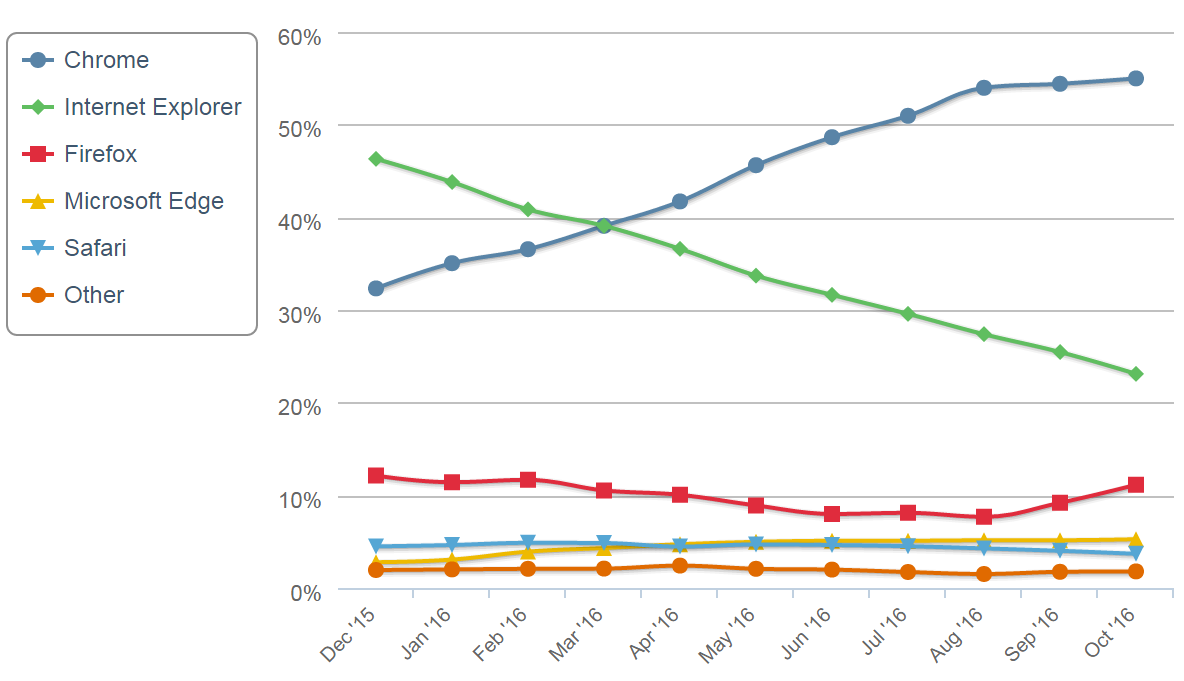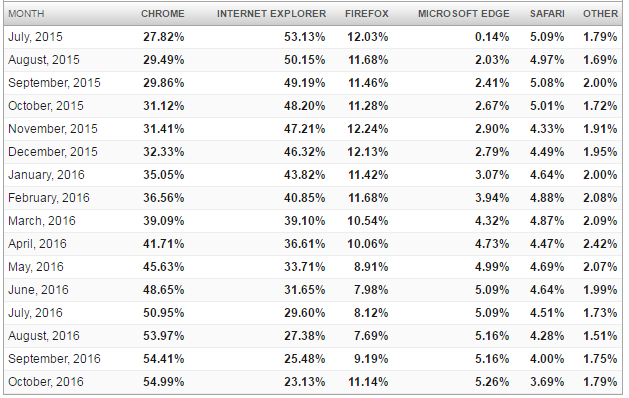The share of Google Chrome among browsers has reached 55% and continues to grow

Graph of popularity of major browsers
Microsoft has dominated the desktop operating system market for a long time and is not going to surrender this market. But not everything is so rosy in the browser market, which the company once won from Netscape with its Internet Explorer, which came as the default browser from the most popular operating system on the planet.
Just over a year ago, Internet Explorer held the leading position in the browser market. Not the last role in this leadership was played by the wide prevalence of obsolete operating systems of the company. All other browsers, including Google Chrome, played the role of "catching up" with Microsoft in terms of market share.
Since July 2015, when the share of Internet Explorer according to the resource netmarketshare was 53.13%, and Chrome - 27.82%. But everything changed not in favor of the browser from Microsoft: according to October data, Google Chrome approached the mark of 54.99%, while the share of Internet Explorer dropped to 23.13%. In fact, for 15 months, browsers "swapped."

It is worth noting that in these statistics for IE, the Edge browser that comes with the Windows 10 operating system is not taken into account.
Two reasons for the stable decline in Internet Explorer’s popularity are the obsolescence of the Microsoft “workhorse” and the lack of IE and its successor, Edge, extensions.
It is extensions, according to some opinions, that Google Chrome owes its popularity. The ease of installation, the fairly extensive store and the insight into the daily life of the opportunities offered by the extensions (for example, ad blocking, screenshots, and so on) were the key to Chrome's success.
Microsoft realized the importance of extensions too late. The technology giant only in August of this year added the ability to install extensions to its new Edge browser through the built-in store, but the number of programs available for use is still extremely small. In this situation, a clear parallel is drawn with the loss of the smartphone market by MS. Then the Lumia failure was tied to the Windows Store, which was indecently empty and did not even have counterparts for popular iOS and Android applications.
Only registered users can participate in the survey. Sign in , please.
